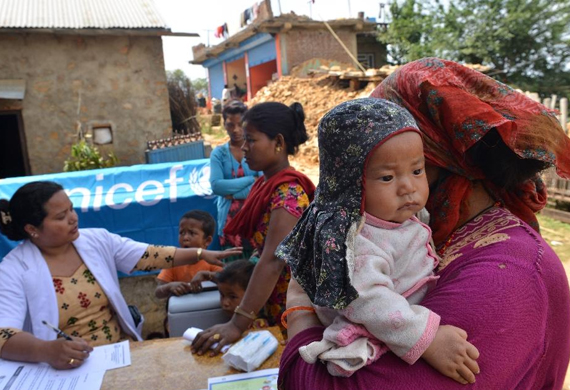
Indian Embassy in Kathmandu invites Nepali Women to apply Online for Vaccine
By: WE Staff | Tuesday, 15 June 2021
In a first, the Indian Army has made vaccines available to Nepalese women in Military Police.
The announcements come at a time when there are calls to stop recruiting Nepali youths for the Indian Army.
The Army says it intends to continue recruiting Nepali youths, both male and female, in order to broaden the opportunities for the youth.
The Indian Embassy in Kathmandu has issued an announcement inviting qualified Nepali females to apply online.
The announcement established certain criteria, but it also provided some leniency to children whose parents died while serving in the Indian Army.
As per the criteria those who have passed class 10, aged between 16 to 21 or those who were born between October 1, 2000, to between April 1, 2004, and with a height of more than 152 cm can apply.
The deadline for applications is July 20. According to the notice, those classified as Veer Nari are eligible to apply for up to 30 years.
Those who meet the criteria will be considered for further selection in Ambal, Lucknow, Jabalpur, Pune, Belgaum, and Shillong.
The children of former Indian Army recruits, Veer Nari, and whose fathers were killed while on duty, will receive a weight reduction and grace mark of 20 in the written exam.
According to the treaty between Nepal and India, the Indian Army has a separate Gorkha Regiment, and over lakhs of Nepali, nationals have served and retired in various positions in the Indian Army.
During the East India Company's reign, the recruitment of Nepali youths began in 1816.
Over 32,000 Nepalese are currently serving in the Indian Army in various capacities in seven Gorkha Rifle regiments (1st, 3rd, 4th, 5th, 8th, 9th, and 11th), each of which has five to six battalions (around 800 soldiers each).
Following independence in 1947, the 2nd, 6th, 7th, and 10th regiments were transferred to the British Army. These have now been merged into a single Gorkha Regiment.
Over lakhs of veterans are currently receiving pensions after retiring from the Indian Army.
Before the country's civil war began in 1996, the Communist Party of Nepal-Maoists demanded that the recruitment of Nepali youths in Indian and British armies be halted.
After 2007, the Maoists served in various capacities in the Nepali government, but they never raised the issue with the Indian and British governments about scrapping provisions for Gorkha recruitment in Indian and British armies.
Instead of scrapping the recruitment process, both the Indian and British Armies are expanding it, and the Indian Army has now begun recruiting women as well.


.jpg)



